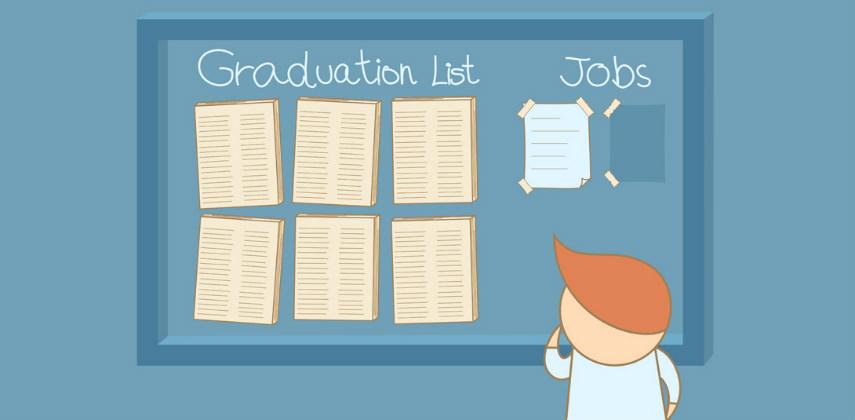As university students accelerate towards graduation day, the mood can be a jumble of mixed emotions. Certainly there is excitement and nervous anticipation hanging in the air as one chapter in life comes to a close and another slowly begins to materialise on the horizon. Unfortunately, as university ends, it is also this new beginning that can fill soon-to-graduate university students with fear, dread, and anxiety. Graduating from university means entering the competitive “real” world where finding a good job is key to success in life. Smart university students know that the search for a post-graduate career shouldn’t start after the cap and gown come off. Successful students know that they should be working on building up their resumes while they’re still in school so that they’ll have an easier time finding employment once they graduate.
Here are five ways that university students can build their resumes now for success later:
1.Gain professional exposure. The best thing university students can do to boost their resume is to start adding relevant professional experience to their C.V. This can be done either with a part-time job, an internship, work-study programmes through your school, or by volunteering with a company that specialises in the field or industry you want to be employed in. It’s important to remember that only applicable experience should be added to your resume. For example, if you’re studying to become an accountant, working at a sandwich shop isn’t going to impress anyone unless you were also in charge of tallying daily earnings at the end of each day and reviewing accounts.
2.Develop leadership skills. Employers want to hire candidates who can demonstrate strong leadership skills, even as entry-level employees. During your years at university, join campus clubs and national associations, volunteer to head up various organisations or events, and look for other ways to stand out. Being a proven leader doesn’t have to be limited to school life. You can find other opportunities to hone your leadership skills in your local community as well.
3.Find a mentor. Although simply having a mentor won’t necessarily increase your chances of getting hired, it can help your overall job application to include a well-written and insightful recommendation letter. Start building relationships with a mentor as early as possible so that the bond can be strengthened over time and allow for growth and development. This is the only way that your mentor relationship can be of greatest benefit to you and your resume. Having a mentor will also help you immensely as you progress through university, which will be a great asset regardless of how they can impact your job search.
4.Make time for extracurricular activities. Staying on top of all the studying and examinations during university may be difficult, but make sure to carve out time for extracurricular activities. Including pertinent hobbies in your resume can reveal key skills and personality traits that certain employers may be looking for. Unfortunately, not all extracurricular activities have transferrable skills so be sure to only list the ones that connect with desired skills like managing teams or events, technical or writing practice, and foreign language or cultural programmes. Longevity is also key when listing extracurricular activities. If you only gave piano lessons a shot for one year, it doesn’t say much about you. On the other hand, if you volunteered with disabled veterans for five years, that’s admirable.
5.Thoroughly proofread and spell check your resume. While it does sound like the most obvious thing to do, you would be surprised by the number of resumes recruiters and hiring managers receive that proves this still isn’t common practice among those seeking for new positions. Resumes with spelling, grammatical, and other such errors tend to be passed over almost immediately so if you want to give yourself a competitive edge on your resume, check and double check and even triple check that everything on your resume looks and sounds perfect before you hit the send button. Another good idea is to read your resume and cover letter out loud. This helps prevent missing any mistakes your eyes might skim over.
Graduation is a time for university students to be celebrating all their hard work and dedication for the last several years. It shouldn’t be a time fraught with trepidation about the future. Look ahead now and follow these five steps to boosting your resume. When it comes time to graduating and finding a first job out in the real world, you can also be celebrating your first job offer.





